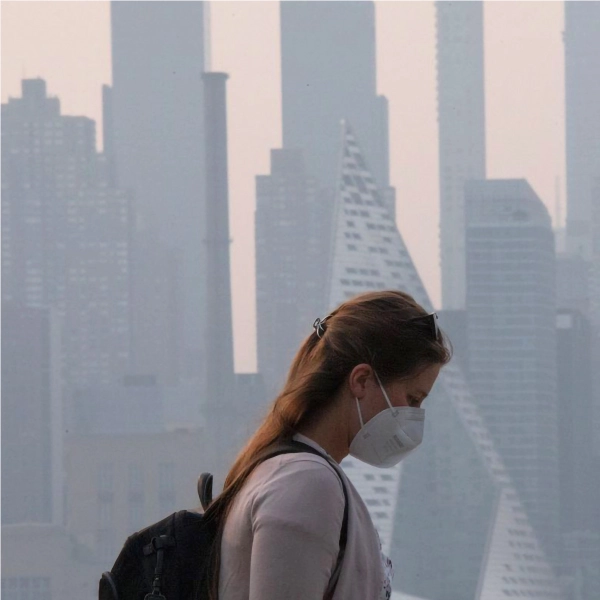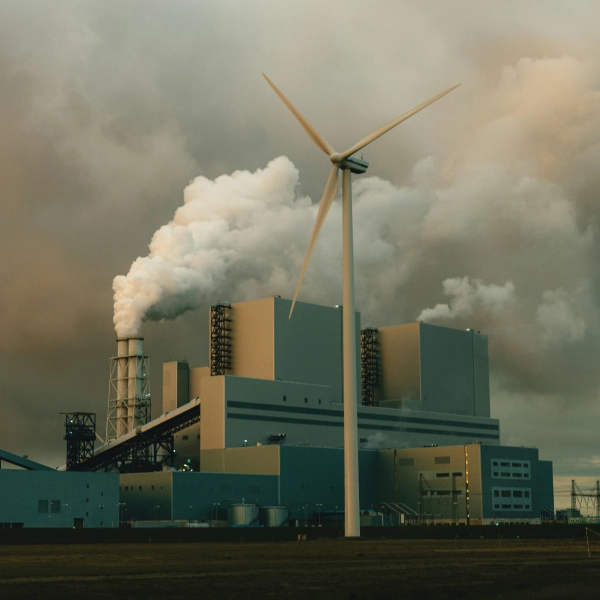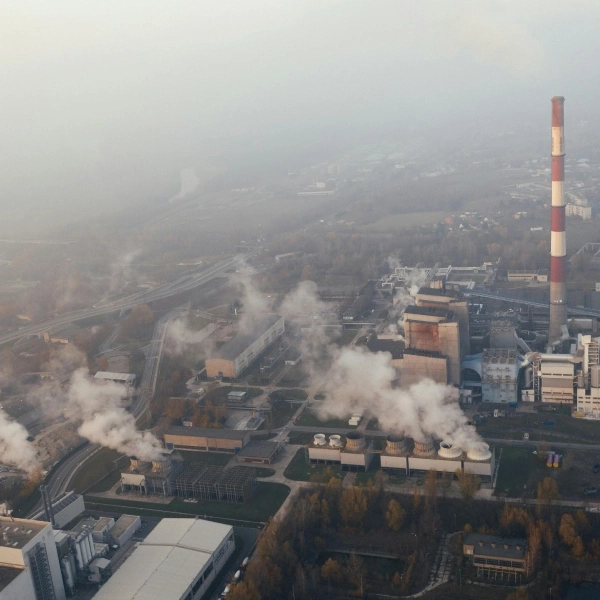Outdoor air pollution knows no limits, unlike nations or countries. Poor outdoor air quality can have significant health consequences for you and your loved ones. Many factors can pollute and degrade outdoor air quality, including wildfires, exhaust emissions from cars and industry, dust, mold spores, and pollen. Addressing this issue requires not just awareness but actionable knowledge and strategies to mitigate the adverse effects on our health.
This blog aims to guide readers through the complex issues of bad air quality, providing insights into how it might possibly affect us, recognizing the indicators of its impact on our well-being, and, most importantly, practical suggestions for protecting ourselves from poor air quality. Provided with the necessary information and skills, we may make proactive efforts to guarantee that the air we breathe does not endanger our health, allowing us to retain our quality of life even in the face of environmental difficulties.
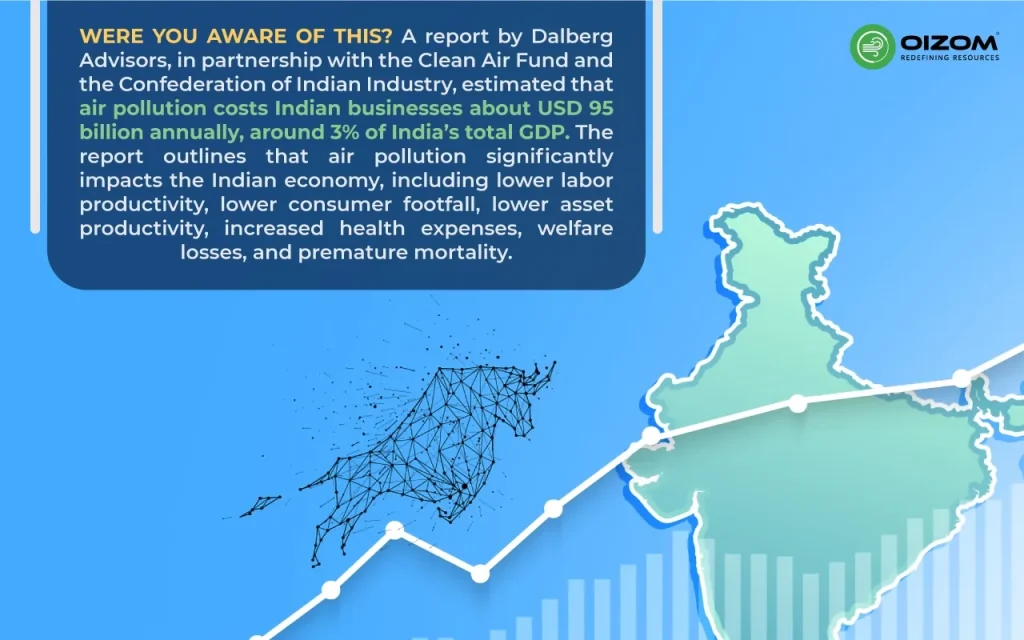
Can Poor Outdoor Air Quality Make You Sick?
Yes, it can. Long-term exposure to poor outdoor air quality has been related to numerous health concerns. The most important aftermaths and unhealthy air quality symptoms include:
- Asthma
- Bronchitis
- Heart attacks
- Chronic obstructive pulmonary disease (COPD)
- Allergies
- Shortness of breath
- Chest pain
- Wheezing
- Coughing
- Fatigue
- Premature death
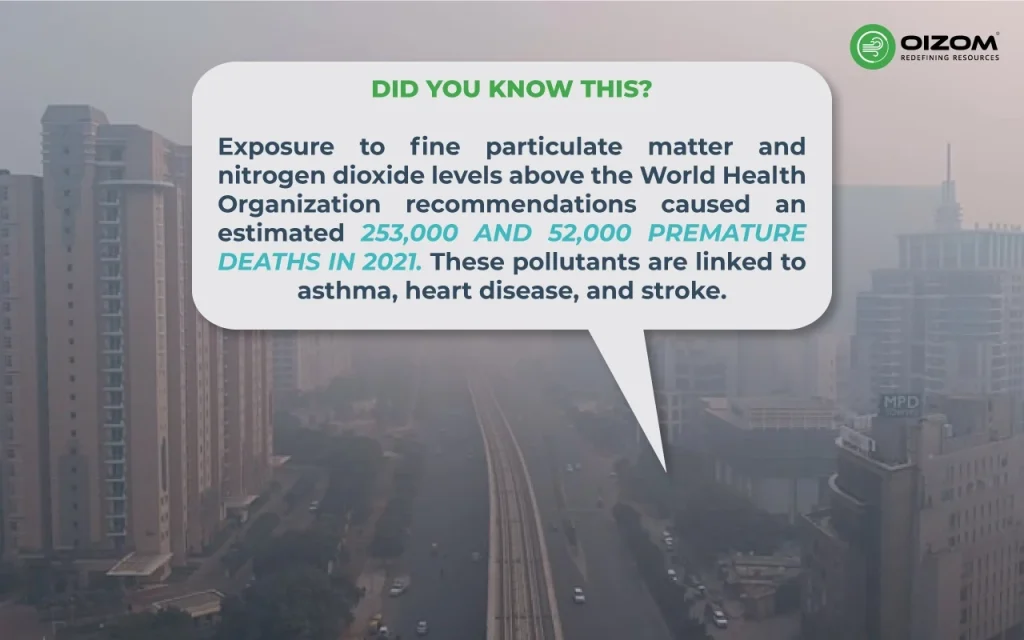
Pollution-related losses “could impede India’s aspiration to be a $5-trillion economy by 2024,” the researchers concluded. “Successful reduction of air pollution in India would substantially benefit both the population’s health and the economy.”
How to Tell if Bad Air Quality Is Affecting You
Identifying the impact of poor air quality on our health is critical, but it is not always simple. Symptoms can be subtle and readily confused for common conditions. Therefore, vigilance is essential for determining whether air quality is the cause. If you or your loved ones live or work in high-pollution areas and breathe in too much of it, you may notice signs and symptoms such as:
- Runny nose
- Burning eyes
- Trouble breathing
- Irritation in your throat and lungs
- Excessive phlegm
- Worsened heart or lung conditions
Smog from air pollution, wildfires, or smoke from a manufacturing chimney can also impair your vision or produce a cloudy environment. To mitigate these issues, it’s essential to Improve Outdoor Air Quality. This may make driving or getting around difficult, increasing your chance of a road accident.
Tips to Protect Your Health from Poor Air Quality
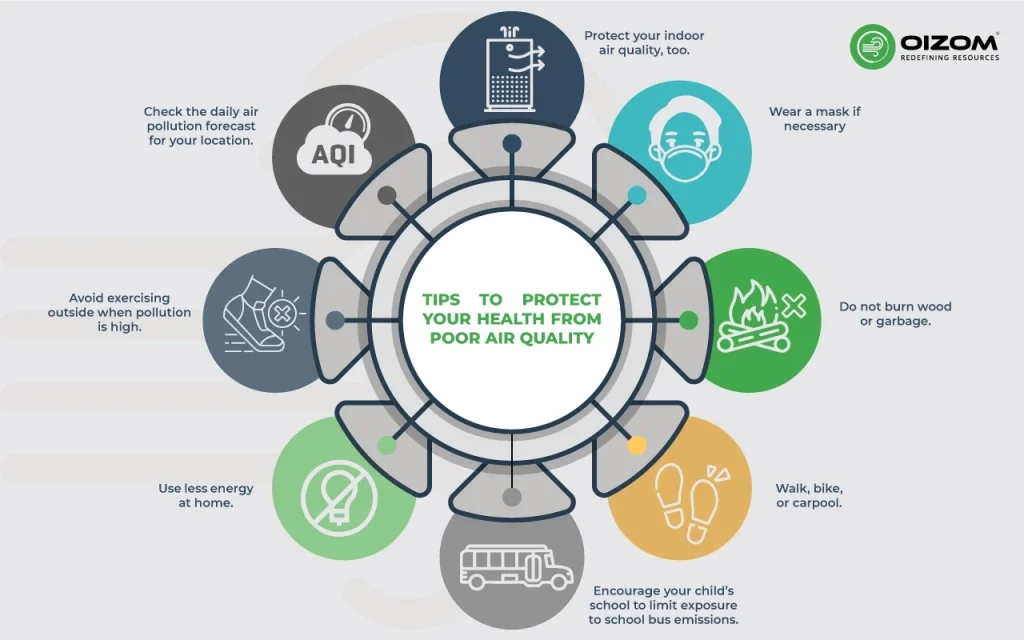
Here are some simple, effective tips for protecting you and your family from the dangers of outdoor air pollution:
- Check the daily air pollution forecast for your location. Color-coded forecasts can alert you when the air in your area is bad. Local radio and television weather broadcasts, newspapers, and the internet are all possible sources.
- Avoid exercising outside when pollution is high. When the air quality is poor, move your training indoors, such as walking around a shopping center or visiting a gym. Limit your child’s time playing outside if the air quality is poor. Even if the outdoor air quality prediction is green, avoid exercising in high-traffic regions because automobiles on major roads can emit high pollution levels.
- Use less energy at home. Electricity and other forms of energy generation emit pollutants into the atmosphere. By conserving energy, you can help improve air quality, reduce greenhouse gas emissions, promote energy independence, and save money!
- Encourage your child’s school to limit exposure to school bus emissions. To reduce pollution emissions, schools should not allow buses to idle outside their facilities. Many school districts are utilizing this strategy. The US EPA’s Clean School Bus Program states that diesel buses should be replaced with electric buses.
- Walk, bike, or carpool. Combine adventures. Rather than driving your automobile, take advantage of buses, subways, light rail systems, commuter trains, and other modes of transportation.
- Do not burn wood or garbage. Burning firewood and rubbish are significant causes of particle pollution in many parts of the country.
- Wear a mask if necessary; Wildfire smoke, dust from building sites, and gravel roads can all contribute to particulate matter, a kind of air pollution. When particle matter is inhaled, it might cause respiratory problems. A decent mask, such as a N95, can help keep these tiny particles at bay, particularly if you spend time outside.
- Protect your indoor air quality, too.
Conclusion
Finally, while we can’t control the air we breathe outside, we can take steps to plan for when outdoor air quality is poor and certainly can control how we respond to it. Monitoring outdoor air quality regularly with the help of Oizom devices can help here by providing real-time and accurate air quality data and sending alerts if the quality breaches the threshold limits. This way, you can stay updated on air quality from anywhere. We empower you to take quick mitigation actions to save the place and people from potential, and one can prepare mitigation strategies by making appropriate decisions. By taking informed and thoughtful actions, we can safeguard our health and ensure our well-being, even when the air around us is less than ideal.
FAQs
Limit outdoor activities and stay indoors with windows closed. Air purifiers improve indoor air, and the local air quality index (AQI) is regularly checked. If it’s a must to go outside, wear a mask like an N95 respirator to filter out harmful particles.
Yes, symptoms from short-term exposure usually improve in cleaner air. Those with pre-existing conditions should monitor symptoms and consult a healthcare provider if necessary. Long-term effects may require medical attention.
Avoid running outside when air quality is poor. Exercise can increase breathing and absorb more pollutants. Opt for indoor exercise or wait for improved air quality conditions.

